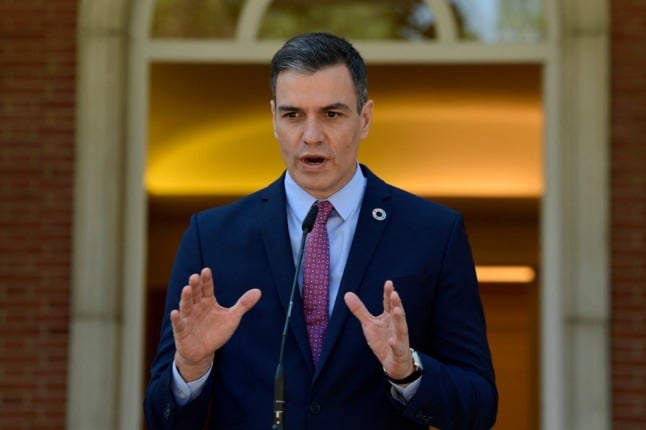Spanish Prime Minister Pedro Sánchez on Tuesday dismissed the possibility of bringing back the state of alarm which was lifted on May 9th 2021, saying his government “wouldn’t approve anything more than what is already agreed between the national Health Ministry and the regions”.
Sánchez’s words come as 14,137 new Covid cases were reported in Spain in the past 24 hours, taking the incidence of the virus up by another 19 points in just a day.
That means Spain’s fortnightly infection rate has gone from 92 cases per 100,000 inhabitants on June 22nd up to 225 infections per 100,000 on July 6th, nearing the extreme risk threshold of 250 per 100,000.
But it’s infections among unvaccinated young people that are truly spiking: 652 cases per 100,000 12 to 19 year olds and 717 infections per 100,000 20 to 29 year olds.
READ ALSO: ‘Explosive transmission’: What you need to know about Spain’s fifth Covid wave
“We understand the (pandemic) fatigue; we are very aware that we are entering the summer, that they have finished the school year, the university year, but it’s very important to stay cautious because they can subject themselves to harm and can make older more vulnerable generations sick,” Pedro Sánchez said.
However, for Spain’s Prime Minister the decision to reintroduce Covid measures rests on the regions, reiterating to journalists that the country has a decentralised system where autonomous communities have the powers to legislate.
Catalonia and Navarre have been the first regions to address the rise in inspections among their young populations by limiting venue capacities and closing nightlife establishments, which were only allowed to open recently after months of closure.
READ MORE: Spain’s Catalonia reimposes Covid restrictions as cases spike
Regional authorities in the central territory of Castilla y La Mancha have however called on the government to bring back the state of alarm and with it measures such as the nighttime curfew.
The reason for this is that under the national state of alarm, regional governments could quickly roll out legislation without having to get it approved by a judge, and without this legal protection, restrictions deemed to breach fundamental rights such as a curfew are likely to be contested by regional high courts and the Supreme Court.
Nonetheless, the Spanish Health Ministry headed by Carolina Darias has also dismissed the possibility of this happening and has encouraged their regional counterparts to introduce measures such as those in Catalonia and Navarre if they see it as necessary.
Authorities in Asturias, Madrid and the Valencia region have said they are currently studying the possibility of reintroducing restrictions to stem infections.
Spain’s first state of alarm was implemented on March 14th 2020 as the country and the world went into a strict lockdown and ended on June 21st 2020 ahead of the summer season.
A second state of alarm was reinstated on October 25th 2020 due to rising infections in Spain after the summer period and ended on May 9th 2021.
READ ALSO:



 Please whitelist us to continue reading.
Please whitelist us to continue reading.
Member comments